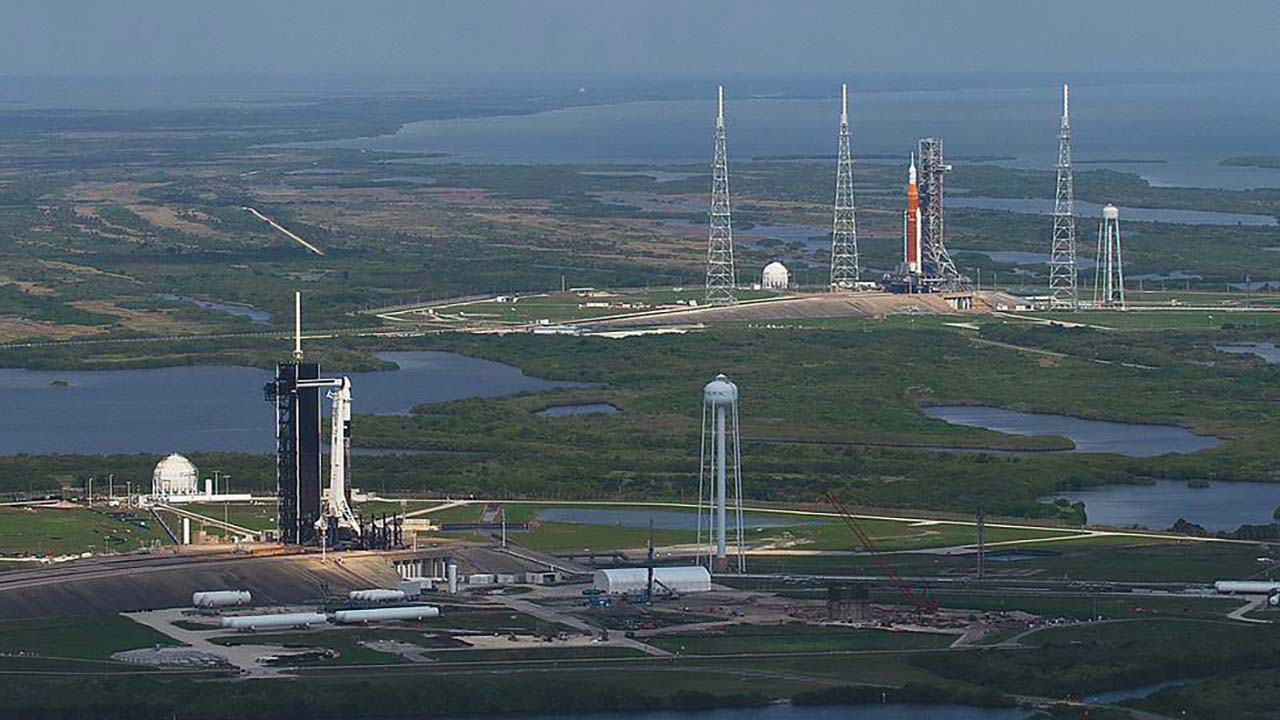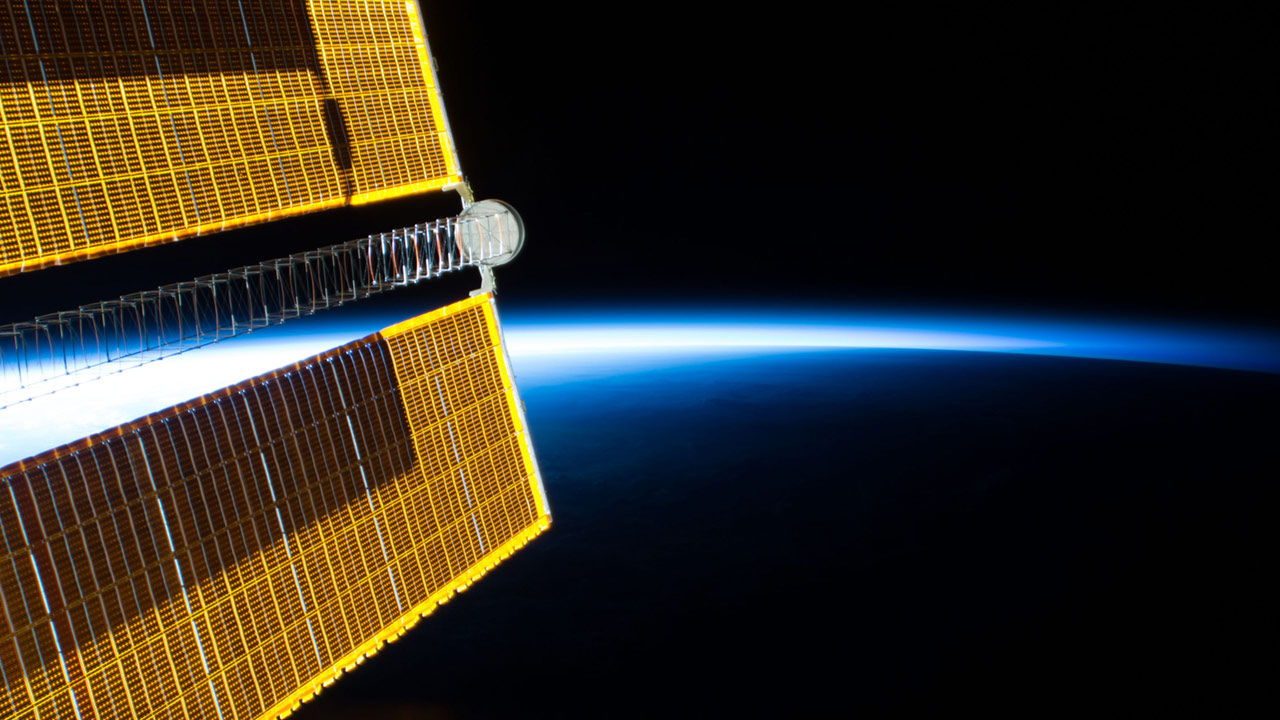The following questions are relevant to RFP 2020-3: Utilizing MISSE for Materials Science Research and Technology Demonstrations in Space.
Will the funding for the Implementation Partner go to the researcher or directly to Alpha Space?
Funding will go directly to Alpha Space; it does not need to be routed through the researcher. The proposed budget should not include overhead, but the proposal should include a Statement of Work with the budget from Alpha Space.
Are we able to use other Implementation Partners for instrumentation development or must we use only Alpha Space?
This solicitation is focused on the Alpha Space MISSE platform, and the ISS National Lab is only considering funding for Alpha Space. If there is a need to consult with another Implementation Partner or institution to develop instrumentation or conduct ground-based testing of components outside the Statement of Work provided by Alpha Space, you would need to identify other funding sources to cover those costs. Funding for those costs should not be requested from the ISS National Lab.
Has MISSE flown high outgassing polymers or low vapor pressure metals? I am interested in a study that could result in cross contamination of adjacent experiments.
Materials like those have not yet flown, but Alpha Space engineers have an idea that could mitigate concerns about contamination of other MISSE customer samples and the ISS. Those types of samples could be flown in a well that is recessed a bit below the MSC exposure deck that would not have a line of sight to any portion of the ISS (most likely the ram and/or zenith directions). Outgassing would travel out of the well and should not impact anything else. However, Alpha Space would need to discuss this design and concept of operations with NASA/Boeing materials and contamination groups to assess feasibility and to ensure that everyone agrees with the approach.
Can overhead be included in the budget for the proposed Institution?
No, through this solicitation, the ISS National Lab will only be providing funding for Alpha Space Implementation Partner costs.
Can travel costs be included in the budget? For example, to visit Alpha Space or to attend the launch.
Funding for travel may be requested in your budget; however, these costs should be included on a separate line item and should not be combined with any other costs. Your budget narrative should clearly state the purpose of your travel, the travel destination, and the number of travelers expected. While an initial request for travel funding may be approved at the time of award, each trip must be approved in advance of travel to ensure reimbursement. The process for requesting travel approval and reimbursement will be included in your contract with the ISS National Lab.
Can applicants include costs for Alpha Space to run control samples under ideal conditions? For example, the thermal vacuum bake out, environmental testing, which may change the materials.
Yes, there is a double vacuum chamber at Alpha Space, and if that is not appropriate for the required test, Alpha Space can contract out the tests. Those costs would need to be included in the Alpha Space Statement of Work and would be allowable in this solicitation.
Do your environmental sensors measure electron flux or incident photon flux?
No, the sensors currently at Alpha Space are for atomic oxygen, UV intensity, total ionizing radiation, contamination, and temperature. If there is a particular sensor you would like to fly on the MISSE platform, Alpha Space could potentially include it, but they would need to know the type of sensor you want to fly and, if feasible, it should be included in the Statement of Work.
Are there any on on-orbit characterization capabilities, such as a spectrometer?
Not at this time, but it could be developed.
I assume the Kapton-H sample measures atomic oxygen exposure via measurement of mass loss?
Yes, that is correct.
What are the timelines for MISSE 16 and 17?
At this time, Alpha Space does have target launch opportunities, but payload space is not yet manifested. MISSE 15 is currently scheduled for launch in the spring of 2021, and MISSE 16 is scheduled to launch in the fall of 2021, most likely in the timeframe between August and October. Typically, MISSE payloads launch in March/April and September/October. Alpha Space requires samples at least five months prior to the scheduled launch date.
Is there any public information on the types of experiments and results?
There is not a requirement to publicly post or share materials data or results from investigations. However, the ISS National Lab strongly encourages principal investigators to publish their results and to share data that is not proprietary, restricted, or sensitive. Information on previous MISSE NASA investigations, MISSE-1 through MISSE-8, is available on the NASA Materials And Processes Technical Information System (MAPTIS) website and the NASA MISSE website at the NASA Glenn Research Center. Alpha Space can also provide information on the types and classes of materials that have previously flown on the MISSE platform, and principal investigators are strongly encouraged to consult with Alpha Space. Additional information on materials science experiments in microgravity can be found in the NASA Physical Science Informatics (PSI) database.
Can we develop an experimental plan and small hypersonic structure that can do a free fall from space back to earth?
That is not a capability of the MISSE platform at this time, but with additional hardware development, Alpha Space could attempt it. This capability would not likely be available for this solicitation, but there are various satellite launch platforms on the ISS. If you are interested in these platforms and technology development projects in that area, please contact the ISS National Lab at [email protected] to learn more about the platforms and the process to submit unsolicited proposals.
Is there a timeline when the experiment/samples must be received by Alpha Space and on-orbit?
Alpha Space needs hardware/samples/technology in hand five months prior to launch. For the MISSE 15 launch, which is scheduled for spring of next year, Alpha Space would need samples in the November timeframe of this year.
What are evaluation factors for the budget and Statement of Work for the researcher and Alpha Space?
Submitted budgets should focus on covering the costs of the Implementation Partner services provided by Alpha Space. If there are additional budget requirements, those can be included, but the ISS National Lab will not be covering institutional costs or principal investigator costs. Budget requests above what is required in the Statement of Work provided by Alpha space will be evaluated as proposals come in.
Our company is interested in submitting an RFP. In the proposal submission instructions, there is a reference to a required Risk and Compliance Questionnaire, a template on the solicitation webpage. I’m unable to locate this template and was hoping that you could assist me.
Thank you for your interest in the RFP. In the Solicitation Instructions section of the MISSE RFP webpage, there is an online form to complete. Once the form is filled in and the download button is clicked, the forms referenced in the MISSE RFP will download in a zip file. The Risk and Compliance Questionnaire and the RFP2020-3 ISS National Lab Proposal Profile and Certifications Form are the same.
Should we calculate the cost of performing an experiment on ISS? Is there a fee chart available?
There is no need to calculate the cost of doing the experiment on the station. The ISS National Laboratory will provide transportation for the experiment to and from the ISS from our allocation from NASA.
I am U.S. based and a U.S. citizen, is it acceptable to collaborate with a non-U.S. researcher?
As long as you are listed as the Principal Investigator (PI) and your organization is the sponsoring U.S.-based entity submitting the proposal, you can include collaborators from outside the U.S.
If a university or company decides to use a foreign national on its project, ISS U.S. National Lab does not get involved in an entity’s export control program, particularly regarding ITAR and EAR. We rely on universities and companies to take all appropriate measures regarding export, including following appropriate NASA regulations. Please confer with your export professionals for guidance.
NASA’s Export Control Program: https://oiir.hq.nasa.gov/nasaecp/
NASA Designated Countries: https://www.nasa.gov/oiir/export-control
I’m a foreign national from China and read about the PI requirement for this proposal call, I would like to check the details of eligibility with you.
- Can FN from National Lab be exempt from this requirement?
- Will green card holders be eligible or is US citizenship required? I got mixed information when browsing through the website.
- Can FN be co-PI with a US citizen as PI?
- Can FN be team member with a US citizen as PI?
Principal Investigators need to be U.S. Persons, which includes Permanent Residents (Green Card holders). However, certain foreign nationals (including Permanent Residents) are indicated on NASA’s Designated Countries List: China, Syria, Iran, etc. These foreign nationals pose a greater risk and require extensive review and approval from NASA. As a general rule, the ISS U.S. National Laboratory avoids doing business with foreign nationals from countries on NASA’s list. If the proposing entity wants to use people from NASA’s Designated Countries list as part of its project, it is very unlikely that project will be approved. In addition, if a University or Company decides to use any Foreign National on its project, it should be aware that ISS U.S. National Laboratory does not get involved in an entity’s export control program, particularly regarding ITAR and EAR. We rely on Universities and Companies to take all appropriate measures regarding export, including following appropriate NASA regulations.
NASA’s Export Control Program: https://oiir.hq.nasa.gov/nasaecp/
NASA Designated Countries: https://www.nasa.gov/oiir/export-control
Will you make available a list of submitters who are not selected?
We do not release information on submitters not selected for award.
Are all submitters (prior to award selection) responding to RFPs listed on a website?
The names of submitters are not available prior to project selection and award determination





